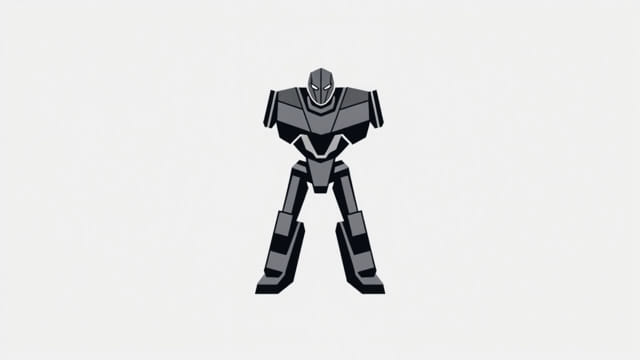In recent years, internet culture has evolved at lightning speed, introducing phrases, formats, and viral content that can be baffling to those not constantly online. One such phrase that frequently pops up across platforms is X mentioned WTF is meme. To those unfamiliar with meme culture or internet slang, this may sound confusing or even nonsensical. However, within digital communities, this phrase blends curiosity, humor, and irony. Understanding it requires a closer look at how memes function, what the phrase signifies, and why it captures attention so effectively across various social media platforms.
Understanding the Phrase: X Mentioned WTF is Meme
The phrase X mentioned WTF is meme is typically a blend of two internet elements. First, X mentioned refers to a person, account, or entity bringing up a topic often in a comment, tweet, or discussion. WTF is meme captures a user’s confusion or astonishment at the concept or content of a meme. Together, the phrase expresses a kind of bewilderment or a humorous acknowledgment of how strange or inexplicable internet memes can be to the uninitiated.
Breakdown of the Terminology
- X Mentioned: This is a placeholder. It could refer to a username, celebrity, or anonymous account. For example, Elon Musk mentioned or Reddit user mentioned
- WTF: An acronym for What The F***, widely used online to express shock, confusion, or disbelief.
- Meme: In internet culture, a meme is a humorous or relatable piece of content (often an image, video, or phrase) that spreads rapidly among users.
The Evolution of Internet Memes
To truly grasp the meaning behind this phrase, one must understand the broader context of internet memes. Originally, memes were simple images with text designed to entertain or make a joke. Over time, they became increasingly layered, self-referential, and niche. Some memes reference obscure pop culture events, others mock societal norms, and many play with language in unexpected ways.
From Simple to Surreal
In the early 2000s, memes like Bad Luck Brian or Success Kid were instantly recognizable. Today, meme formats often rely on irony, absurdity, or layered meanings. This shift has made memes more complex and, at times, baffling. Thus, when someone says WTF is meme, they may be reacting to a particularly cryptic or surreal piece of content.
Why People Use the Phrase
The phrase X mentioned WTF is meme is often used humorously. It plays with the confusion felt by people who aren’t deep into internet culture. Here are some reasons why the phrase is gaining popularity:
- Irony: Internet users enjoy making fun of how weird memes can be. The phrase mocks both the meme and the confusion it generates.
- Relatability: Many people have had moments of staring at a meme and wondering what it even means. This phrase captures that experience.
- Trendiness: Using the phrase helps users stay part of online trends and conversations, even if they don’t fully understand the content being discussed.
The Role of Social Media Platforms
Social media has played a major role in the spread of both memes and the phrase X mentioned WTF is meme. Platforms like Twitter (now X), Reddit, TikTok, and Instagram foster environments where memes thrive. Comments and mentions help memes circulate quickly and widely.
X (formerly Twitter) as a Breeding Ground for Memes
Twitter, recently rebranded as X, has long been a hub for viral content. Short text posts allow users to quickly respond to memes, mention others, and participate in discussions. When someone mentions a meme or asks WTF is meme, it reflects the platform’s rapid and sometimes chaotic content sharing.
Community Reactions and Threads
Often, a user will post a meme, and others will reply with confusion or analysis. These threads can become long discussions about the meaning, origin, and cultural significance of the meme. It’s common to see phrases like X mentioned WTF is meme appear at the top of such threads, highlighting someone’s reaction to a particularly strange meme.
The Meta Aspect of Meme Culture
One of the most fascinating aspects of meme culture is its self-referential nature. Memes often reference other memes, internet events, or online personas. This makes them inherently meta they are about themselves and about the culture that produces them. Saying X mentioned WTF is meme is part of this meta-commentary. It acknowledges the complexity of meme culture while contributing to it.
Layered Humor
Modern memes often require background knowledge to understand. The humor might lie not in the image or words alone, but in the context, the history of the format, or a previous meme. Newcomers to the scene might feel overwhelmed. The phrase in question expresses that disorientation in a humorous way.
The Power of Meme Language in Digital Communication
Memes have transformed how people communicate online. They allow for the rapid spread of ideas, jokes, and opinions with minimal effort. Phrases like X mentioned WTF is meme reflect how meme language has become embedded in digital interactions.
Speed and Virality
Because memes can be shared so quickly, they often go viral in a matter of hours. The surrounding commentary, including confused or ironic phrases like the one we’re exploring, fuels their popularity and ensures continued engagement.
Meme Interpretation
As internet culture continues to evolve, phrases like X mentioned WTF is meme will become increasingly common. They reflect both a curiosity about meme content and a playful engagement with its often confusing nature. Whether you’re a meme veteran or someone just beginning to explore this digital world, it’s clear that memes and the language around them are here to stay. Understanding and appreciating the humor in confusion is part of what makes meme culture so entertaining and dynamic.
